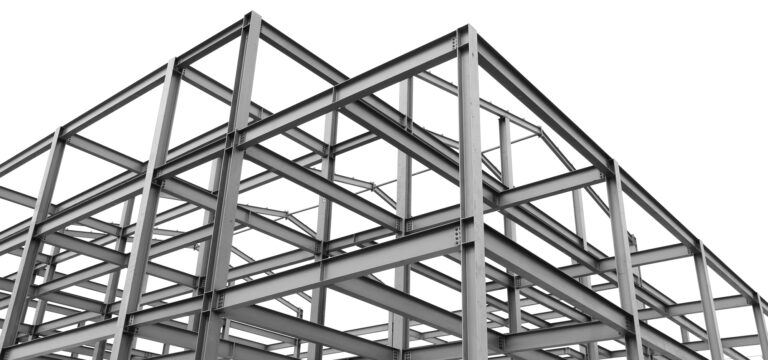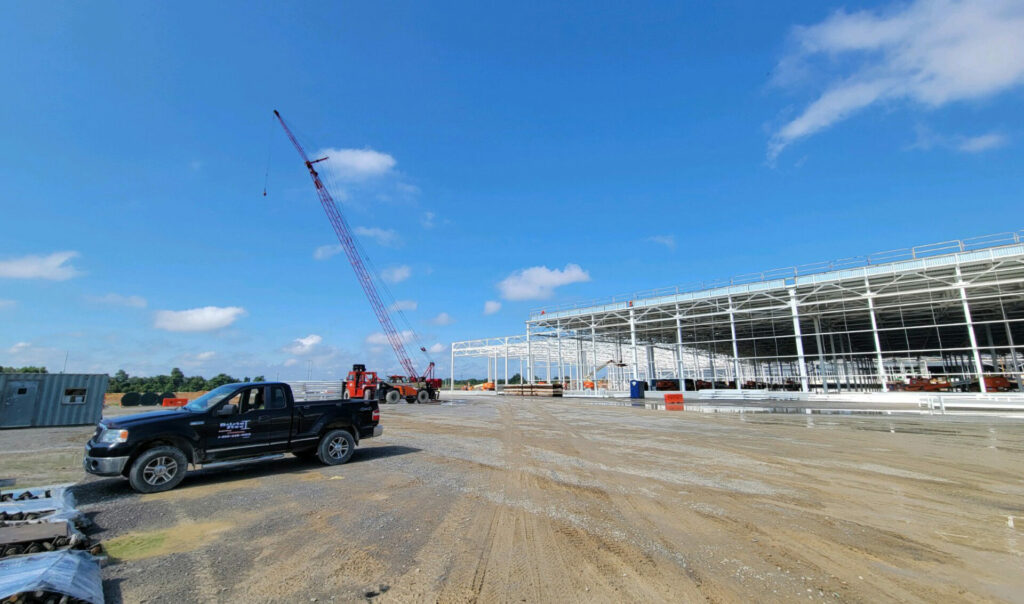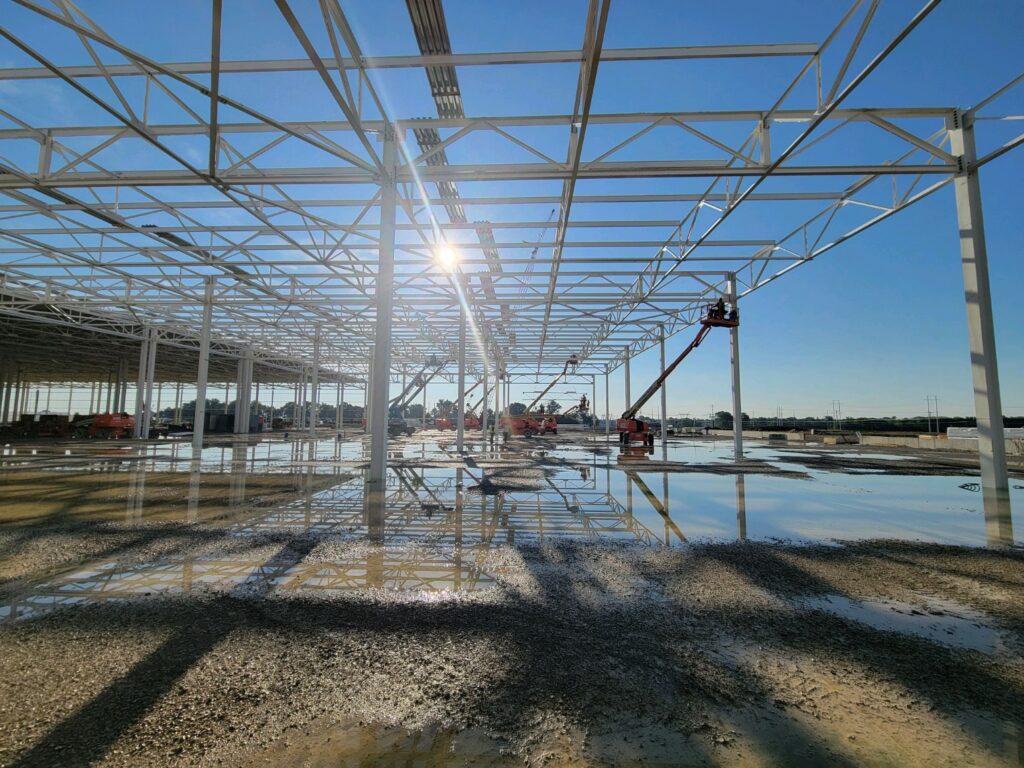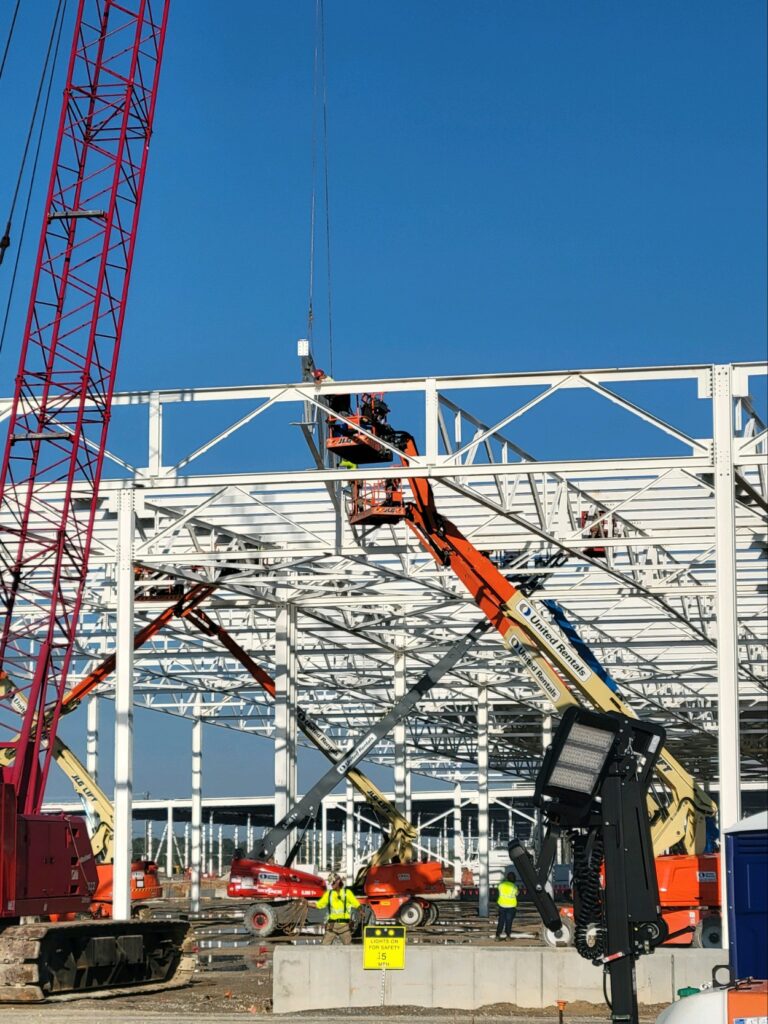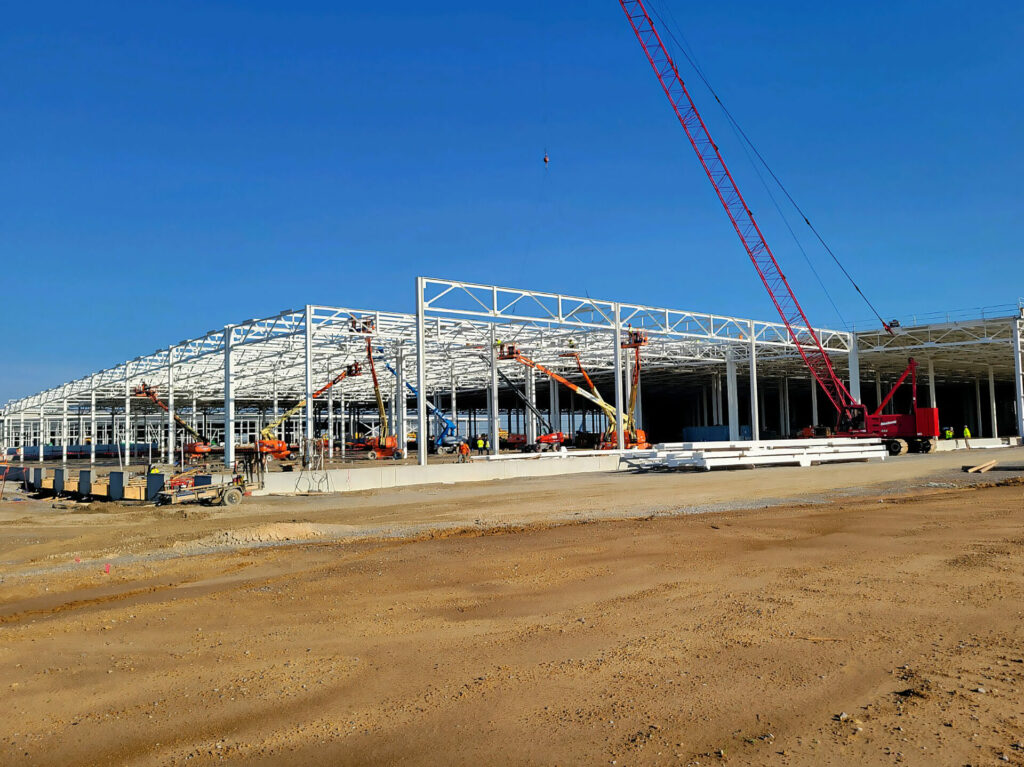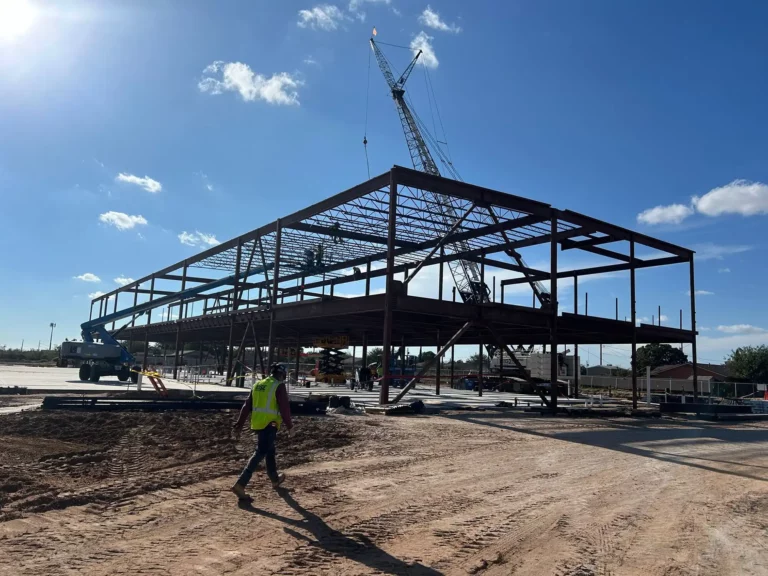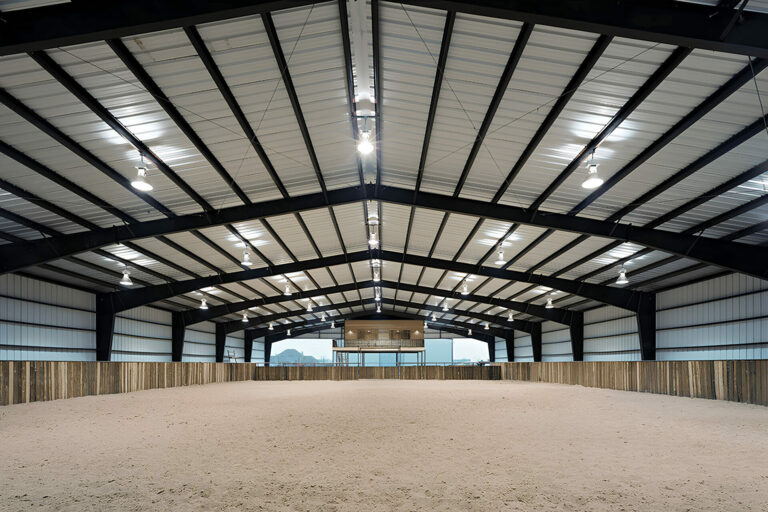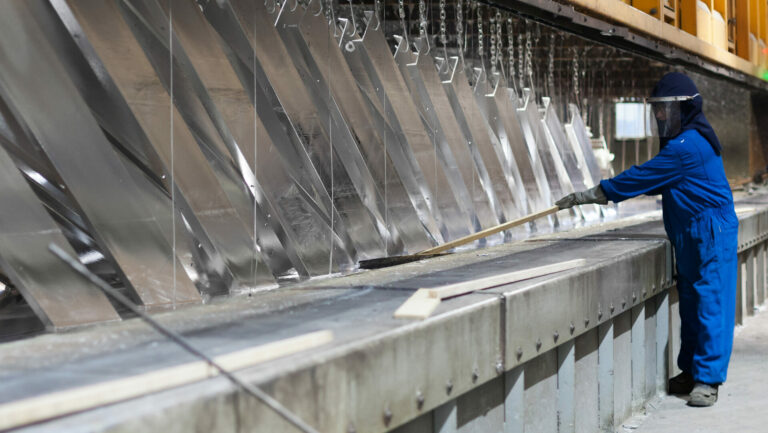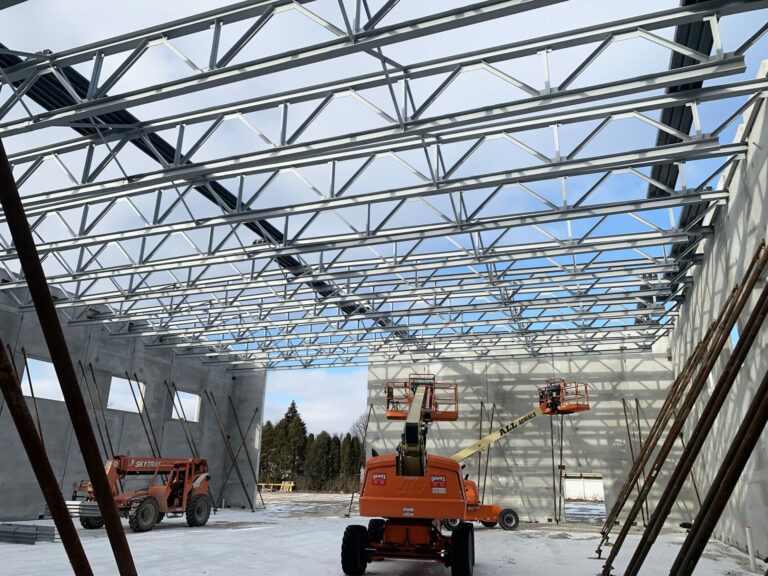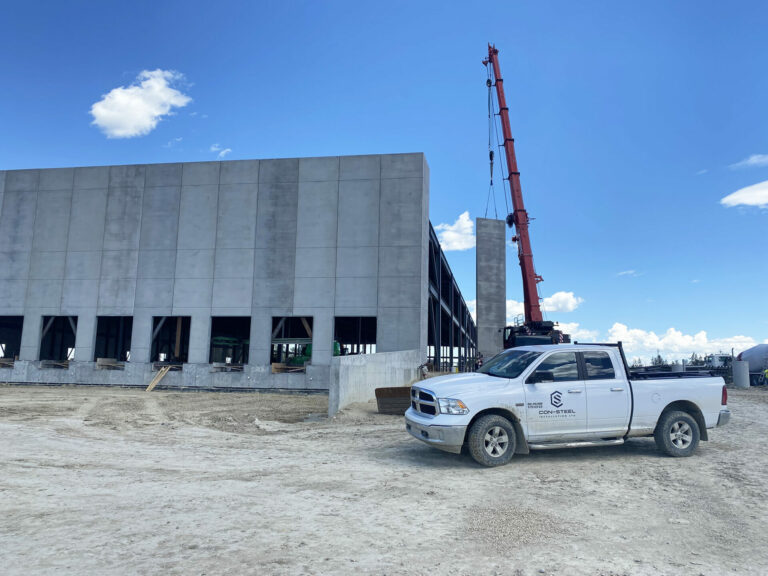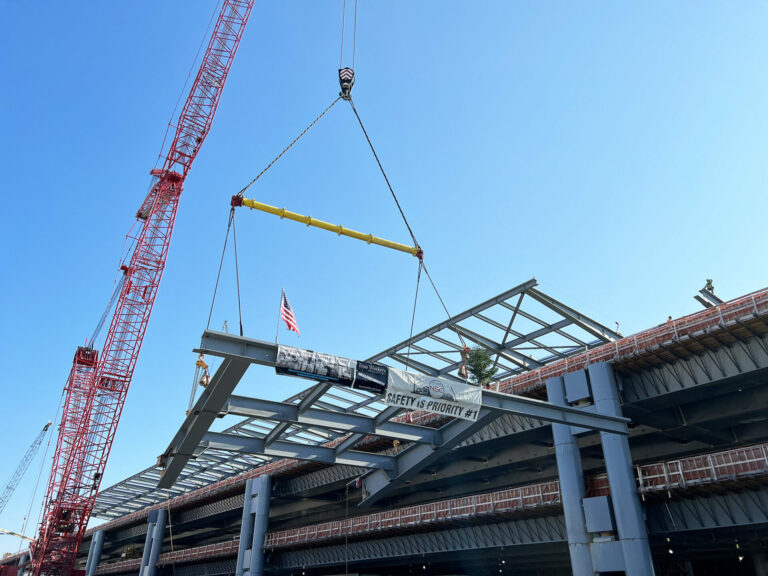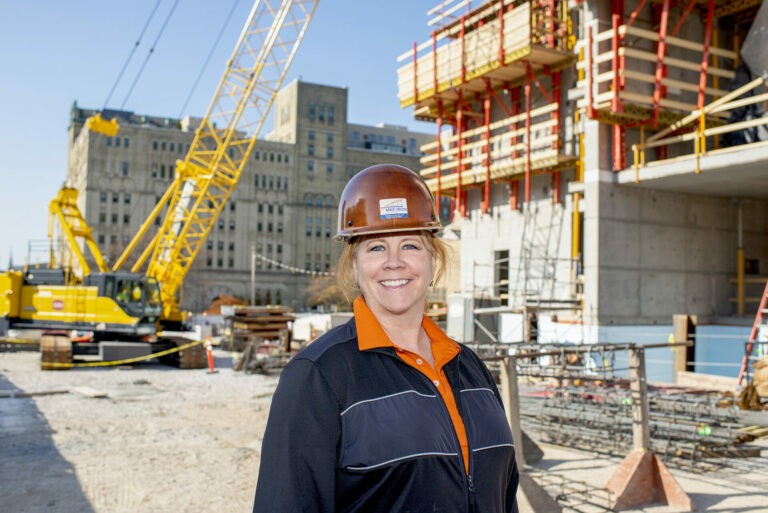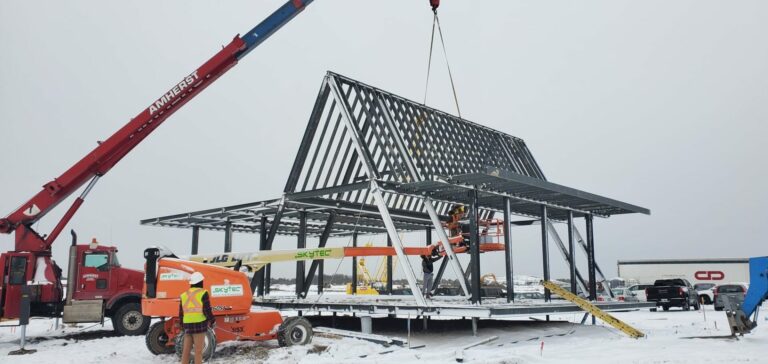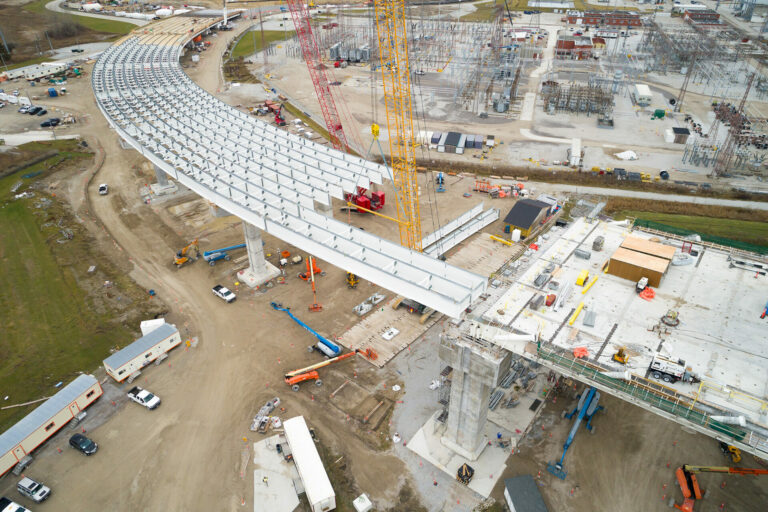From its 95,000 square foot plant in Davison, Michigan, Bristol Steel & Conveyor Corp has been providing structural steel solutions to the surrounding area since 1979. Davison is located within the environs of Detroit, the Automobile Capital of the World, and so it makes sense that automotive industrial work is, as Estimate & Sales Manager Matt Payne says, “our bread and butter.” Owned and operated by Ray Oliver, Bristol Steel is fully equipped to deliver large, labor-intensive projects that are anywhere up to 10,000 tons in scale. However, as Payne explains, they are more than just an automotive company.
“We’re starting to do a lot more commercial and institutional work. We are currently expanding the company’s capabilities as far as fabrication goes. We have recently purchased two new beam lines for our fabrication shop and put on a 200- foot addition to our plant.”
Payne joins me to talk about where the company now sits after almost 45 years in business, but also about where it all began. The company was started he says, by current Chairman, Ray Oliver. “A journeyman and an ironworker, Ray Oliver got into the trade industry in the sixties where he started working in automotive plants. He was somebody who saw an opportunity and took it,” says Payne. The opportunity he speaks of is the exponential growth of the Automotive Industry in Flint, Michigan back in the seventies and eighties. This boom allowed Oliver to not only start his own company but to set it up for success long into the future. “Here in Davison, we’re about fifteen miles from Flint, and that’s where the opportunity really presented itself. There was a lot of work taking place in the area back then. In the mid to late seventies Ray saw the opportunity to open his own fabrication and erection company, and in 1979 that’s what he did.” Propelled forward by hard work and an ability to spot an opportunity and run with it, Oliver evolved from tradesperson to owner of a company that remains viable and profitable today.
“You go where the work is and where the market takes you.” For Bristol Steel, this was evident back in the seventies during the growth of the automotive industry in the same way that it is now with the rise of the Electrical Vehicle. “These EV plants are really creating a boom for our sector,” Payne explains. He gives the example of the BlueOval City in Kentucky which is an automotive assembly complex that will be operated by Ford Motor Company and SK Innovation. “The Blue Oval project was about a 40- 42-hundred-ton project,” he says. “It’s a single-story truss and column manufacturing plant addition for the battery buildup of the building.”
Bristol Steel’s involvement in the BlueOval project, which aims to reimagine how electric vehicles and batteries are designed, built, and recycled, places the company as a significant element of the electric revolution. “It’s all local contractors managing these facilities,” Payne says. “These are $6 billion campuses that go on for six square miles. We already have relationships with these contractors and are in a position where we have been working with some of them for 25 years. So, we’re going to be employing anywhere between 5 to 6000 people at these plants, on these campuses. Sometimes business is about being in the right place at the right time.”
“We are a turnkey company when it comes to fabrication and erection of structural miscellaneous steel.”
Since the beginning, Bristol Steel has evolved. This ability to diversify, develop, and pivot when required has transformed Bristol Steel into a company that, as Payne says, is “one stop shopping when it comes to steel fabrication and erection.” Over the years it has become one of the largest steel fabricators in the state of Michigan, employing about 50 to 60 people in office and about 70 people in fabrication facilities, depending on the workload at a given time. “We are a turnkey company when it comes to fabrication and erection of structural miscellaneous steel. And like I said, we’ll do projects up to 10,000 tons in size, whether it be industrial, commercial, institutional, all types of the industry work.” Payne takes me through the three different divisions that form the building blocks of Bristol Steel.
“So, we have our Bristol Steel division, which is our fabrication and erection facility where we fabricate structural miscellaneous steel.” This division, known as Bristol Steel & Conveyor Corporation, consists of Fabricators and Erectors of small to mega sized structural steel projects, with an organic fabrication capacity in excess of 1500 ton per month. “We have our manufacturing division which fabricates “Rigger Special” high lows, which are specialized rigging equipment that are used all over the country. They’re heavy-duty fork trucks with all types of different weight capacities, and they’re used in the plants for rigging equipment, tooling, things like that.” The Bristol Manufacturing division provides a flexible service by which clients can choose from standardized products or custom designed units tailored to fit individual applications.
Finally, there is Bristol Steel Equipment Rental, which boasts the largest selection of cranes, forklifts, vertical manlifts and specialized heavy lift apparatuses in the mid-west. “We have an extensive array of cranes and all kinds of equipment at our plant that we subcontract rent out to clients all over the country,” says Payne. “And we also do our own trucking, mostly in state, some out-of-state.”
Each of these three divisions is experiencing growth in tandem with the growth of the structural steel industry as a whole, and as business expands rapidly it is important to understand how quality is maintained across the board. “We are an AISC Certified Fabricator and Erector,” Payne says proudly, speaking of the American governing body of the steel industry. “We have high quality standards that we have to maintain, and we get audited every year. A lot of our projects now require these certifications and we have been certified for the past 10 years. Quality standards are high, especially in the automotive industry. They want the best of the best, right?”
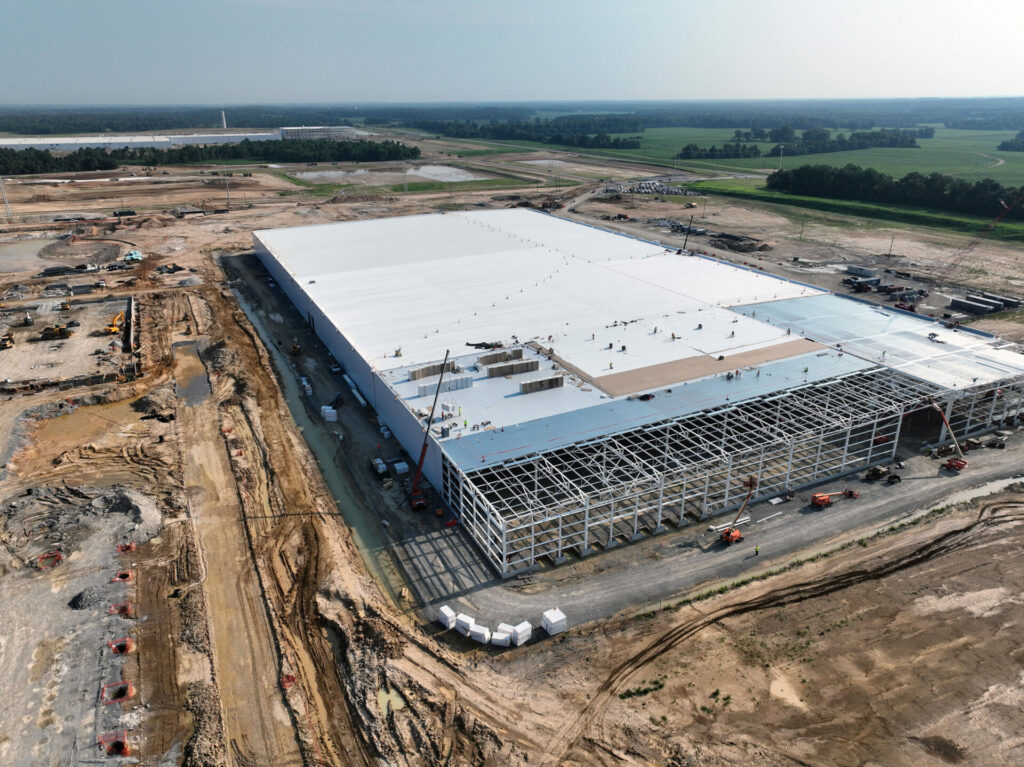
Speaking of its commitment to quality service, Payne tells me about some of the high-class projects Bristol Steel has worked on over the years. “We like larger projects, obviously. We don’t want to do 50 jobs a year to do 30 million. We want to do 10 jobs a year to do 30 million. We want quality, not necessarily quantity, and we don’t aspire to make our profit up on volume.” Bristol Steel ensures that at each phase of fabrication there’s a dedicated full-time Quality Control Person that reports directly to each shop Manager, checking that each piece of steel is dimensionally correct with the appropriate finish. Another method by which high quality is upheld is through Chairman Ray Oliver, who continues to play a significant role in the day-to-day running of the business. One of the keys to success, Payne believes.
“A job we’ve done recently is the Ford Rouge project down in Dearborn, MI on the main plant, which is where everything started for Henry Ford. That’s a turnkey plant where they started building up Model T’s back in the early 1900s. They had a waterway that ran through that plant there, the freighters would come through and dump raw materials right there. Ford would process them on his own at his own smelting, he did everything there start to finish back in the early days.” In this way, Bristol Steel has been connected to the Michigan automotive industry throughout the entirety of its lifecycle, from Henry Ford’s beginnings at Ford Rouge to the introduction, and no doubt imminent takeover, of the electric vehicle. “We’re doing a multi-story building in Lansing, Michigan, a testing facility for Neogen Corporation. We’re in the field right now erecting that job out. We’ve done a lot of University of Michigan work including new structures like Ross School of Business down at the U of M campus in Ann Arbor. We’ve also done joist and deck work for Toyota. Whatever our clients want or need, that’s what we do. We really don’t have any limitations.”
Bristol Steel has its eyes firmly set on expansion, and that includes not only in its square footage, but also its equipment and their facilities. “Our new equipment is going to make us 30-40% more efficient, and in turn our ability to take on more work is expanded by 30-40% too.” With the Electric Vehicle acting as a catalyst for a fresh boom in the automotive industry, the company sees no signs of slowing down on that front. Still though, it also plans to build on new relationships in different markets including commercial and industrial. As Payne explains, there is no limit to the smart building solutions that steel, and in particular Bristol Steel, can provide. “You’ve got to grow. You’ve got to adapt. You’ve got to expand your sales and your philosophies all the time,” he says. This is a philosophy in and of itself, and a pathway to success, innovation, and longevity in the industry. “We’ve been around for almost 45 years, and I don’t see anything stopping us from being around for another 45.”








